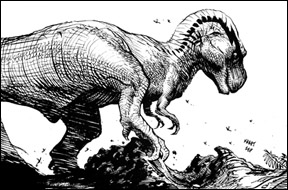
Above photo: In the center of the crowd, President Abraham Lincoln leaves the stage after giving his Gettysburg Address. Because of earlier, more long-winded speeches, the photographer underestimated the time needed to set up his camera for Lincoln’s address.
The Battle of Gettysburg was a historical moment in the American Civil War. Between July 1st to 3rd of 1863, 160,000 American soldiers fought one another at the town of Gettysburg, Pennsylvania. There were between 46,000 and 51,000 Union and Confederate casualties in that battle. Some sources state: For the Union: 23,055 (3,155 killed. 14,531 wounded. 5,369 captured or missing). For the Confederates: 23,231 (4,708 killed. 12,693 wounded. 5,830 captured or missing).
On the afternoon of Thursday, November 19, 1863, President Abraham Lincoln gave a poignant speech at Gettysburg. I find Lincoln’s Gettysburg Address to be the most moving of speeches. Lincoln spoke of God, equality, liberty, and a unified government run by its people.
President Abraham Lincoln’s Gettysburg Address has gone down in history to being quite memorable, despite what Lincoln may have thought of it at the time:
Four score and seven years ago our fathers brought forth on this continent a new nation, conceived in Liberty, and dedicated to the proposition that all men are created equal.
Now we are engaged in a great civil war, testing whether that nation, or any nation, so conceived and so dedicated, can long endure. We are met on a great battle-field of that war. We have come to dedicate a portion of that field, as a final resting place for those who here gave their lives that that nation might live. It is altogether fitting and proper that we should do this.
But, in a larger sense, we can not dedicate... we can not consecrate... we can not hallow this ground. The brave men, living and dead, who struggled here, have consecrated it, far above our poor power to add or detract. The world will little note, nor long remember what we say here, but it can never forget what they did here. It is for us the living, rather, to be dedicated here to the unfinished work which they who fought here have thus far so nobly advanced. It is rather for us to be here dedicated to the great task remaining before us—that from these honored dead we take increased devotion to that cause for which they gave the last full measure of devotion—that we here highly resolve that these dead shall not have died in vain—that this nation, under God, shall have a new birth of freedom—and that government: of the people, by the people, for the people, shall not perish from the earth.Labels: Abraham Lincoln, Christianity, History, Politics















